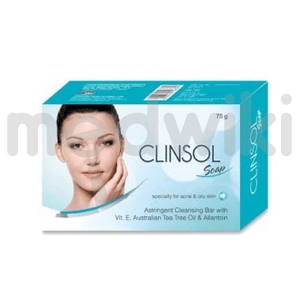clinsol
Introduction to Clinsol
Clinsol is a widely recognized antibiotic medication primarily used to treat a variety of bacterial infections. Its active ingredient, Clindamycin, is effective against a range of bacteria, making it a versatile option for healthcare providers. Clinsol is available in several formulations, including capsules, injections, and syrup, to cater to different patient needs and preferences. It is essential to follow medical guidance when using Clinsol to ensure its effectiveness and to minimize potential side effects. This medication is often prescribed for skin infections, respiratory tract infections, and certain types of bacterial vaginosis, among others.
Composition of Clinsol
The primary active ingredient in Clinsol is Clindamycin, a potent antibiotic that belongs to the lincosamide class. Clindamycin works by inhibiting bacterial protein synthesis, effectively stopping bacteria from growing and multiplying. This mechanism of action makes Clinsol particularly effective against gram-positive bacteria and some anaerobic bacteria. Its ability to penetrate tissues and reach higher concentrations in certain areas of the body enhances its effectiveness in treating infections that other antibiotics may not adequately address.
Uses for Clinsol
- Treatment of skin and soft tissue infections
- Management of respiratory tract infections
- Prevention of bacterial endocarditis
- Treatment of pelvic inflammatory disease
- Management of bacterial vaginosis
- Treatment of bone and joint infections
Side Effects of Clinsol
- Nausea and vomiting
- Diarrhea
- Abdominal pain
- Rash and itching
- Potential development of Clostridium difficile-associated diarrhea
- Allergic reactions in some individuals
Precautions of Clinsol
Before using Clinsol, it is crucial to inform your healthcare provider of any allergies, pre-existing conditions, or other medications you are taking. This medication should be used with caution in patients with a history of gastrointestinal diseases, especially colitis. Pregnant or breastfeeding women should only use Clinsol if clearly needed and prescribed by a healthcare professional. It is also important to complete the full course of treatment as prescribed, even if symptoms improve, to prevent the development of antibiotic-resistant bacteria.
Specifications of Clinsol
Clinsol is available in various forms to accommodate different patient needs:
- Capsules: Typically prescribed for oral administration to treat infections.
- Injection: Used in more severe cases where oral administration is not possible or effective.
- Syrup: An option for patients who have difficulty swallowing capsules, such as children or the elderly.
Conclusion
Clinsol, with its active ingredient Clindamycin, is a powerful antibiotic used to treat a variety of bacterial infections. Available in capsule, injection, and syrup forms, it offers flexibility in administration based on patient needs. While effective, it is important to use Clinsol as directed by a healthcare professional to avoid side effects and resistance. Always consult with your healthcare provider to ensure Clinsol is the right choice for your specific condition.

Similar Medicines
More medicines by Leeford Healthcare Ltd
Available in 4 variations

strip of 10 capsules

packet of 75 gm Soap

Clinsol I 10 Capsule
strip of 10 capsules

Clinsol I 20mg Softgel Capsule
strip of 10 capsules
Disclaimer : This information is not a substitute for medical advice. Consult your healthcare provider before making any changes to your treatment . Do not ignore or delay professional medical advice based on anything you have seen or read on Medwiki.
clinsol
Prescription Required
Manufacturer :
Leeford Healthcare LtdComposition :
clindamycin













.svg)
